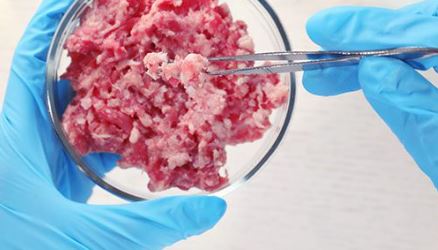
Nutramigen Powder, a specialty infant formula for the dietary management of Cows Milk Allergy (CMA) that is sold in 12.6- and 19.8-ounce cans, underwent extensive testing by MJN and tested negative for the bacteria, reported the FDA.
The agency said the Nutramigen containers were manufactured in June 2023 and distributed primarily in June, July and August.
The FDA said based on the limited availability of the remaining stock of this special infant formula, it is believed that much, if not all, of the products recalled in the U.S. have already been consumed. The agency said there are no reports of illnesses or adverse events to date.
Reckitt Benckiser said all the recalled products have the "Use By Date" of January 1, 2025. The company asked customers to dispose of the products if they belonged to the recalled batches.
Reckitt Benckiser claimed that no other U.S.-distributed Nutramigen batches or other Reckitt products were affected by the recall. (Related: FDA warns 3 baby formula makers over violations of food safety standards.)
Cronobacter infections: Prevention, symptoms and treatment
Cronobacter bacteria can cause severe, life-threatening infections or meningitis. Cronobacter infection can also cause bowel damage and may spread through the blood to other parts of the body.
The Centers for Disease Control and Prevention (CDC) warned that it can also cause "often fatal meningitis" in young infants.
Cronobacter bacteria will usually infect those that are very young, particularly infants born prematurely.
Even though this infection is treatable with antibiotics, death occurs in at least 40 percent of those who develop meningitis because of underlying risk factors and complications.
According to the FDA, this bacteria is naturally found in the environment and can exist on almost any surface. The bacteria can also survive in dry foods, like herbal teas, powdered infant formula, powdered milk and starches.
Despite these serious complications, it is estimated that only 18 cases of invasive C. sakazakii occur each year in the U.S., most of which happen because of the contamination of infant feeding products and equipment.
While this bacteria can cause serious harm, Dr. Anna Morad, Director of the Newborn Nursery and Associate Professor of Academic General Pediatrics at the Monroe Carell Jr. Children’s Hospital at Vanderbilt in Tennessee, said people must keep in mind "that this is not a common infection."
The infection does not cause illness for older children and healthy adults, but it can cause illness in young infants who are under three months of age or those with a weakened immune system, said Morad.
Because young infants are usually affected by this bacteria, detection can sometimes be difficult. Parents should note that many symptoms may start with excessive crying, fever, poor feeding and low energy. In more severe cases, some infants may develop seizures because this bacteria can infect the brain and the fluid within the spinal cord.
Cronobacter linked to past recalls of formula
Cronobacter is the same bacteria that caused the shutdown of Abbott Nutrition’s infant formula plant in 2022.
Because C. sakazakii can survive on many surfaces, it can enter factories or homes simply from one’s hands by not washing. The bacteria can also spread through the soles of shoes.
It is believed that in factories C. sakazakii can contaminate formula powder if the powder touches a contaminated surface or questionable ingredients were used to make the formula.
If you have an infant at home, prevent the spread of the bacteria with the proper sterilization of bottles, utensils, or other breast pump accessories. Thorough hand washing and using clean water to mix the formula can help protect against infection.
Prevention is key to minimizing the risk of Cronobacter infection.
The CDC recommends using a ready-to-feed formula for infants under two months old, babies born prematurely, or infants with a weakened immune system.
How to avoid Cronobacter bacteria
Taking extra steps at home will help prevent Cronobacter infection. For example, you can boil water to at least 158 F, let it cool and then use that to mix with powdered formula.
In the CDC's Morbidity and Mortality Weekly Report, the agency said that due to the widespread presence of C. sakazakii in the environment, caregivers of infants must follow proper and thorough hygiene, preparation and storage practices, and learn steps to protect infants from Cronobacter infection.
Morad warned parents that Cronobacter bacteria can also be found on breast pump parts and bottles so it is important to thoroughly clean these things.
To reduce transmission, Morad recommended proper hand washing with soap and water before preparing bottles, milk, or meals.
While there are many cleaning products on the market, you can also use alcohol-based hand sanitizers with at least 60 percent alcohol as an alternative.
Even though Cronobacter bacteria can cause serious illness in infants, Morad advised parents to be careful with their formula preparation, "but not overly worried as this infection is a rare occurrence."
Practice thorough hand washing and cleaning techniques to protect children and young infants from Cronobacter bacteria, especially if they have a weakened immune system.
Watch the video below for more information about healthier baby formula alternatives.
This video is from the InfoHealth News channel on Brighteon.com.
More related stories:
FDA announces voluntary recall of contaminated eye drops that could blind people.
SALMONELLA outbreak in various states prompts RECALL of diced onion products.
Sources include:
Please contact us for more information.






















